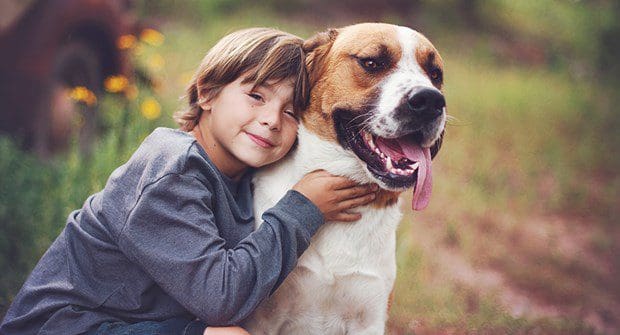The Role of Pets in Child Development: A Closer Look
Furry Friends and Childhood Growth: The Impact of Pets on Child Development

Discover the significant role pets play in child development, including emotional, social, and cognitive growth, and how to foster a healthy child-pet relationship.
Pets are more than just adorable companions; they play a significant role in the development of children. This article delves into the various ways pets contribute to a child’s emotional, social, and cognitive growth.
Pets and Emotional Development
Pets can have a profound impact on a child’s emotional development. They provide unconditional love and companionship, which can boost a child’s self-esteem and promote empathy.
Pets and Social Skills
Interacting with pets can also help children develop essential social skills. Pets can act as social catalysts, encouraging children to communicate, share, and understand the perspective of others.
Pets and Cognitive Development
Pets can stimulate cognitive development in children. Caring for a pet can teach responsibility, while observing and interacting with pets can enhance a child’s observational and problem-solving skills.
Fostering a Healthy Child-Pet Relationship
To maximize the benefits of pet ownership, it’s essential to foster a healthy relationship between your child and their pet. This includes teaching your child how to interact with the pet appropriately and ensuring the pet’s needs are met.
Choosing the Right Pet
The type of pet can also influence the benefits your child receives. It’s important to choose a pet that fits well with your family’s lifestyle and your child’s temperament and age.
The Role of Parents
Parents play a crucial role in facilitating the relationship between their child and their pet. This includes supervising interactions, teaching respect for the pet, and helping the child understand the pet’s needs.
Pets as a Source of Comfort
Pets can provide comfort and security to children, acting as a source of solace during difficult times. The non-judgmental companionship of pets can be a great source of emotional support.
Pets and Physical Health
Beyond emotional and cognitive benefits, pets can also contribute to a child’s physical health. Regular play and walks can help keep both the child and pet active and healthy.
Pets indeed play a significant role in child development, providing a wealth of emotional, social, and cognitive benefits. As parents, it’s essential to foster a healthy child-pet relationship to maximize these benefits. With the right guidance and care, a pet can become a child’s companion, teacher, and friend, contributing positively to their overall development.

Comments are closed, but trackbacks and pingbacks are open.